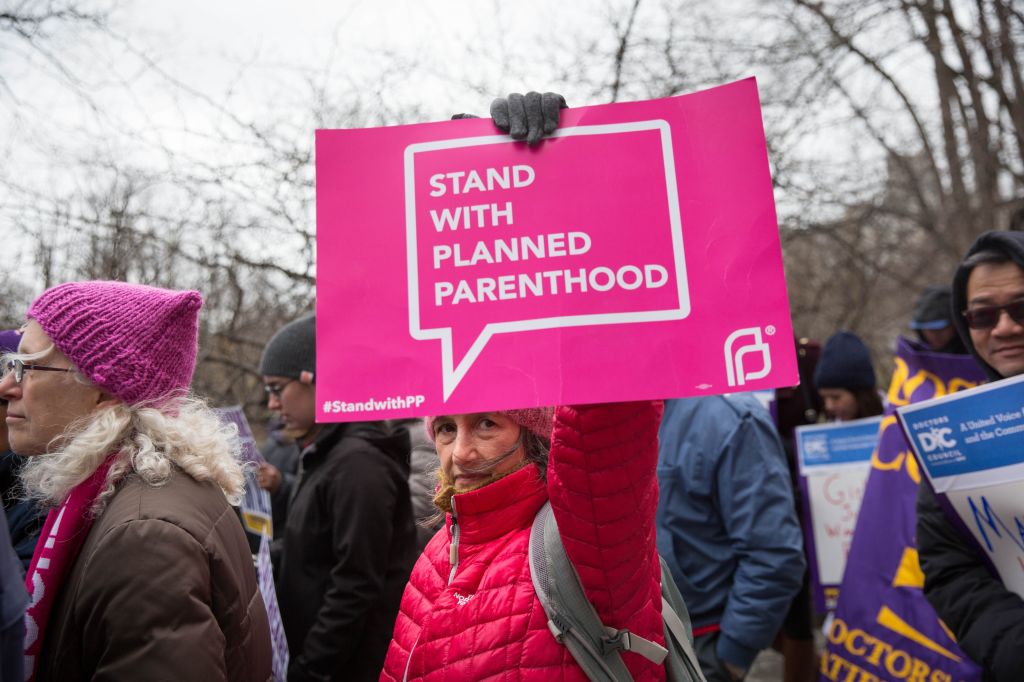SCOTUS Medicaid Decision Could Defund Planned Parenthood

A new decision from the ultraconservative SCOTUS majority involving Medicaid dealt another blow to reproductive rights in a decision that could set the stage for states to defund Planned Parenthood. In Medina v. Planned Parenthood South Atlantic, the Court ruled 6-3 along ideological lines that the federal law at issue does not allow Medicaid recipients the right to sue to enforce their choice of provider.
According to the ultraconservative majority, Medicaid recipients do have a right under federal law to choose their own provider. But they cannot sue to enforce that right even where a state takes the decision away from them, as is the case in South Carolina.
Planned Parenthood South Atlantic, joined by patient Julie Edwards, challenged a 2018 South Carolina executive order that banned access to federal Medicaid funding for non-abortion health care if a clinic also provided abortions. Edwards reportedly joined the litigation as an impacted patient who had found supportive doctors and care at Planned Parenthood.
The decision also comes just days after the third anniversary of the devastating SCOTUS decision in Dobbs. Emboldened by the win, South Carolina Gov. Henry McMaster defended the policy in a statement issued shortly after the Court’s decision, focusing on abortion and not the people who would lose access to necessary healthcare provided by Planned Parenthood. Medicaid already cannot pay for abortions except in very limited circumstances.
Writing a stern dissent, Justice Ketanji Brown Jackson called out her colleagues in the majority for disregarding existing Supreme Court precedent and “enforceable right” created by the Medicaid Act’s free-choice-of-provider provision. Drawing on history and the Civil Rights Act of 1871, Jackson explained why and how Congress gave private citizens the right to sue to enforce rights made available by the Constitution and other federal laws.
In this case, she said that the “provision states that every Medicaid plan ‘must… provide that… any individual eligible for medical assistance (including drugs) may obtain such assistance from any institution, agency, community pharmacy, or person, qualified to perform the service or services required,’” Jackson wrote. “And Congress reinforced its rights-creating intent by making the provision mandatory—it specifically inserted the word “must” into the statute—to make clear that the obligation imposed on the States was binding. If Congress did not want to protect Medicaid recipients’ freedom to choose their own providers, it would have likely avoided using a combination of classically compulsory language and explicit individual-centric terminology.“
In many ways, the decision leaves Medicaid recipients without recourse in states with leadership fixated on defunding Planned Parenthood or otherwise instituting political litmus tests for healthcare. Responding to the decision, South Carolina State Senators Margie Bright Matthews and Tameika Isaas Devine called the ruling a “gut punch” to those who rely on Planned Parenthood for basic healthcare.
“By allowing the state to block a qualified provider from the Medicaid program, the Court has put politics ahead of public health,” the senators wrote. “The real price of this decision will be paid by patients, especially Black, Brown, and rural women who now face fewer options and greater barriers to care.”
In a statement posted to Instagram, Planned Parenthood called the decision an “injustice.”
“SCOTUS’s decision in Medina v. PPSAT today is a blow to Medicaid patients’ freedom to access health care at their chosen provider,” the statement read. “It also effectively may allow lawmakers to deny people the care they need and trust. Public officials should not decide where or how you get the quality, affordable health care you need.”
As noted in a May 2025 policy brief from KFF, defunding Planned Parenthood has been a major aim of anti-abortion groups and policymakers for many years. Nationally, 1 in 3 women reported receiving care at a Planned Parenthood Clinic. According to KFF, an estimated 36% of South Carolina women aged 19 to 64 received Medicaid in 2023.
Now, nearly 60 years after Congress established Medicaid, Congressional Republicans propose deep cuts to Medicaid and reproductive health more broadly. The impact of limiting support for reproductive healthcare could have dire implications for Black women and their families.
South Carolina Democratic Party Chair Christale Spain called out the denial of healthcare based on an anti-abortion agenda. She noted the increased barrier to treatment for people seeking cancer screenings, STI treatment, contraception, and other preventative care services.
“This case was never about fiscal responsibility; it was about targeting a trusted healthcare provider for purely ideological, partisan reasons,” Spain said. “Let’s call this what it is: an effort to control people’s bodies, silence their choices, and limit their options. South Carolinians deserve better.”
SEE ALSO:
Kendrick Sampson’s BLD PWR Teams Up With SisterSong And GBEF For Houston Juneteenth Event
Adriana Smith’s Family Says Goodbye, Asks For Prayers For Newborn Son




